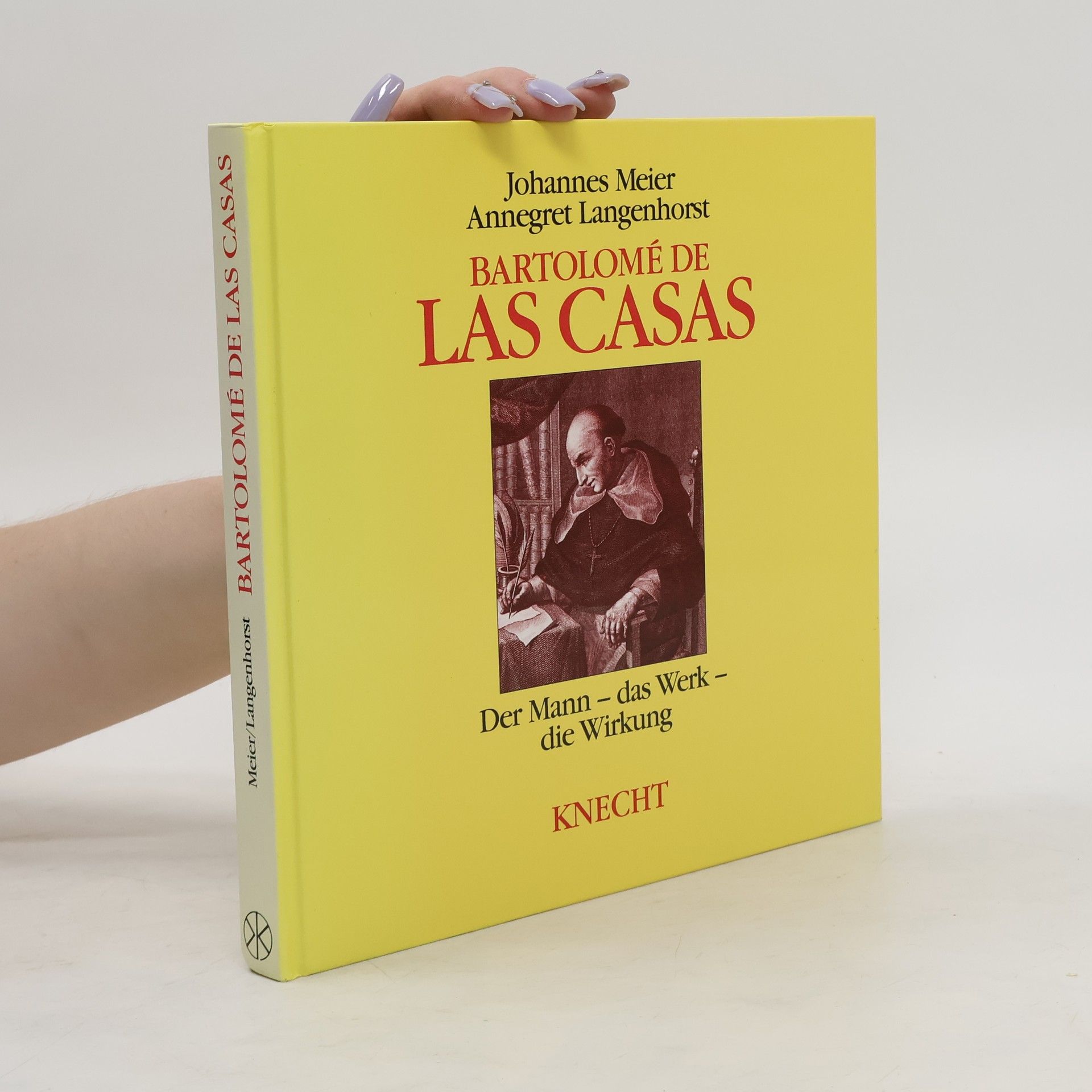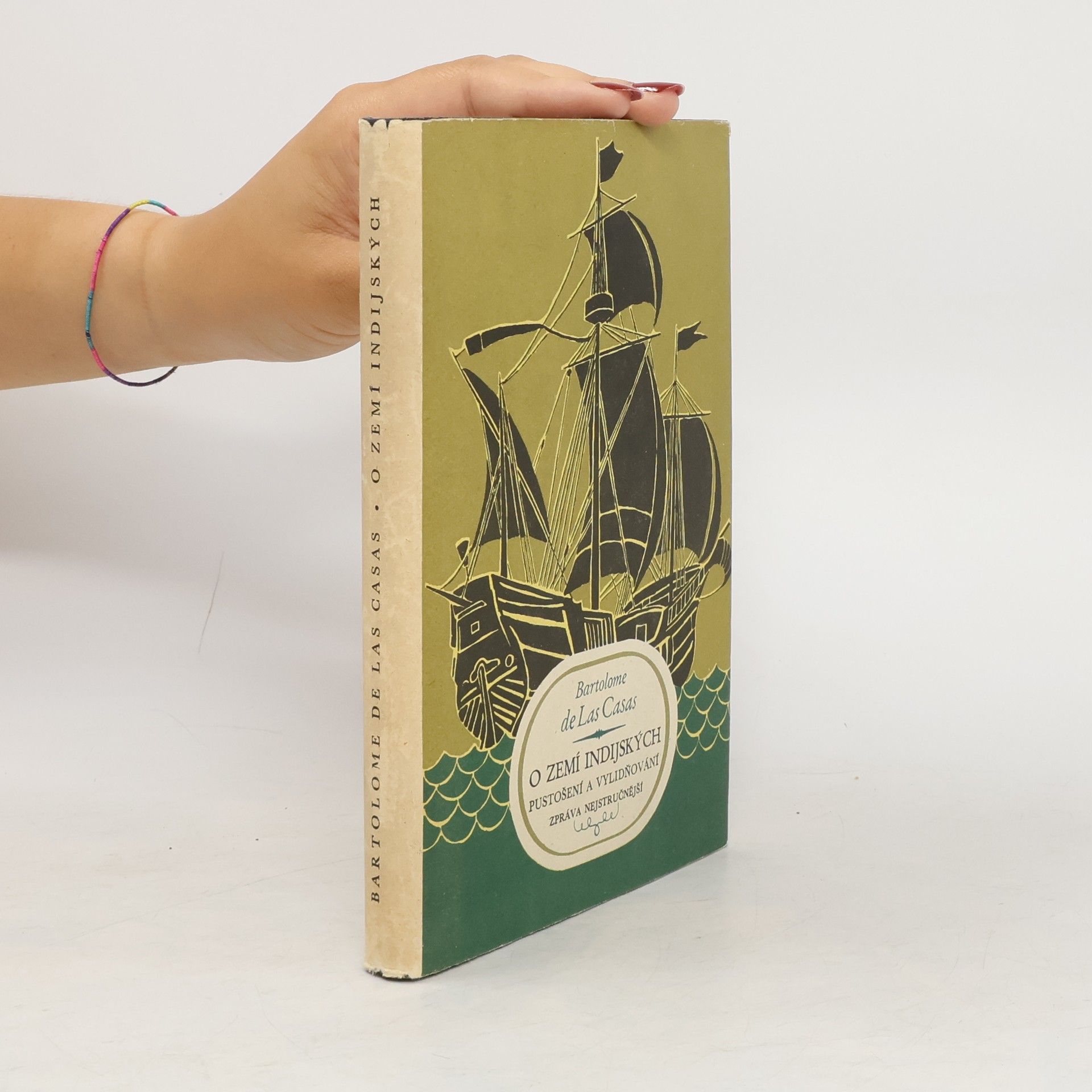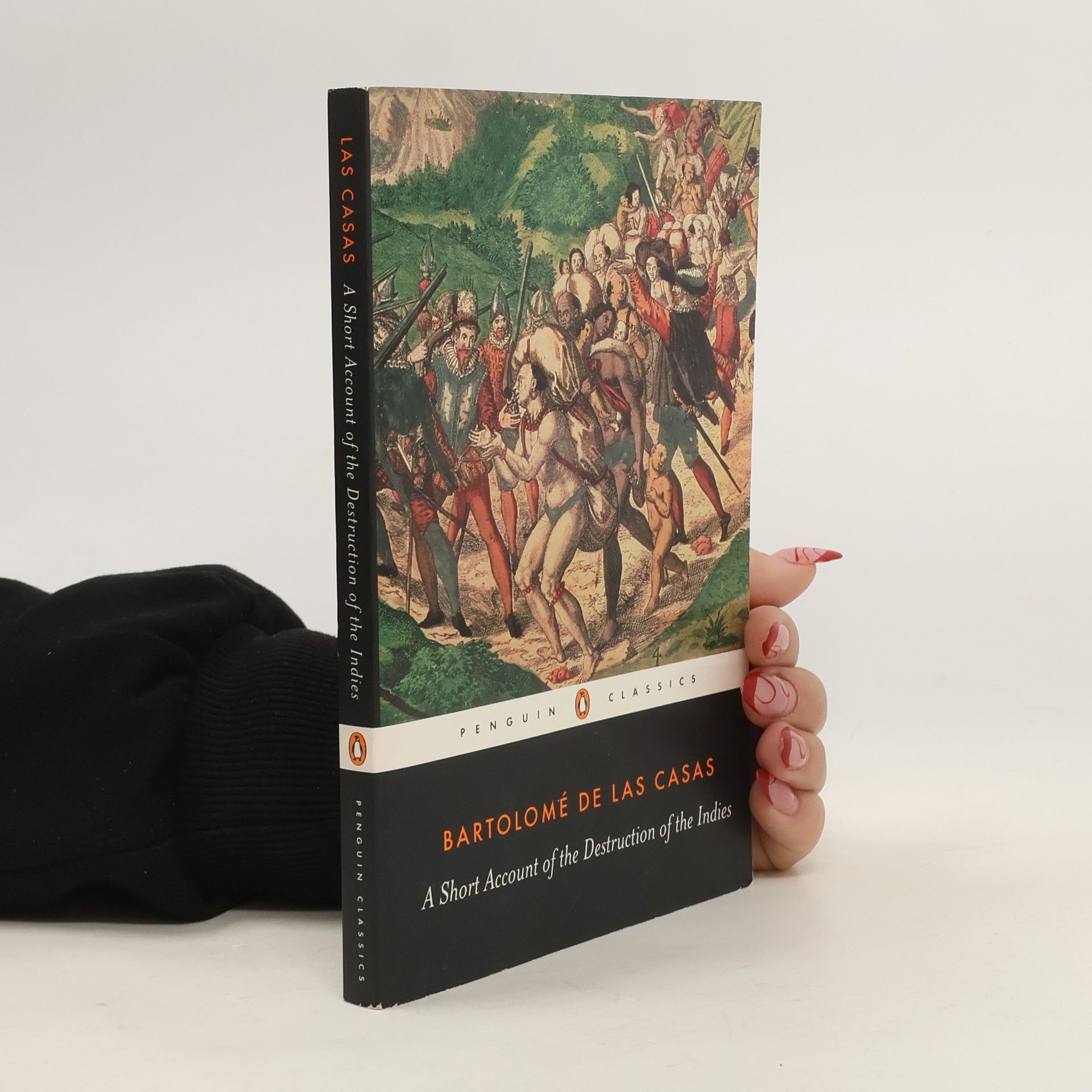Written by a Spanish historian and Dominican friar, this book gives a firsthand account of the Spanish conquest of the Americas and the treatment of indigenous peoples. A powerful and controversial work that still resonates today.
Bartolomé de las Casas Orden de los libros (cronológico)
Bartolomé de las Casas fue un historiador y reformador social español del siglo XVI, que se convirtió en el primer obispo residente de Chiapas y el primer "Protector de los Indios" oficialmente designado. Sus extensos escritos relatan las primeras décadas de colonización en las Indias Occidentales, centrándose particularmente en las atrocidades cometidas contra los pueblos indígenas. Tras una defensa inicial de esclavos africanos, que más tarde retractó para condenar todas las formas de servidumbre, dedicó cincuenta años a combatir activamente los abusos coloniales violentos contra las poblaciones nativas. Se esforzó por convencer a la corte española de adoptar una política de colonización más humana, lo que resultó en varias mejoras en el estatus legal de los nativos y un mayor enfoque colonial en la ética de la conquista. Las Casas es a menudo considerado uno de los primeros defensores de los derechos humanos universales.






This work provides a detailed account of the initial voyages and discoveries by the Spaniards in America, highlighting their extreme cruelties towards the Indigenous population, resulting in the deaths of over forty million people. It includes proposals made to the King of Spain aimed at preventing further devastation in the West Indies. The text is part of a broader collection, Sabin Americana, which encompasses a wealth of materials related to the Americas from their discovery through the early 20th century. This collection features original narratives of exploration, westward expansion, military conflicts, and the experiences of Native Americans, alongside themes of slavery and religious history. Spanning over 400 years, it offers insights into the societal, political, and cultural dynamics of North, Central, and South America, as well as the Caribbean. The collection includes a variety of document types such as sermons, political tracts, newspapers, and maps. For the first time, high-quality digital scans of these original texts are available through print-on-demand, enhancing accessibility for libraries, students, scholars, and general readers.
Le guide des anges gardiens
- 96 páginas
- 4 horas de lectura
Les anges gardiens sont des êtres mystérieux difficiles à capter et à comprendre. Pourtant leur présence peut-être ressentie de tous. Il suffit de savoir comment intercepter leurs énergies afin de communiquer avec eux. Découvrez les facettes cachés des anges gardiens : d’où viennent-ils ? Comment trouver le vôtre ? Quels sont leurs moyens de communication avec les humains ?Le guide complet des anges retrace leur histoire et leurs légendes à travers le temps et répond à toutes vos interrogations.
Insel Taschenbuch - 3162: Kurzgefaßter Bericht von der Verwüstung der westindischen Länder
- 246 páginas
- 9 horas de lectura
Historia: En defensa de los indios
- 279 páginas
- 10 horas de lectura
Bartolomé de Las Casas championed the rights of the Indians in Mexico and Central America, challenging the belief that they were "beasts" meant for enslavement. In a dramatic 1550 debate with Juan Ginés de Sepúlveda, he argued passionately before a royal commission in Valladolid that native inhabitants should be recognized as fellow human beings, skilled in arts and crafts, and capable of learning. His classic treatise on the humanity of native peoples had significant implications for the Spanish Crown and the Church's policies on slavery in the New World. This emotionally charged defense explores just war, intercultural relationships, colonialism, and racism. Written near the end of his career as "Protector of the Indians," it encapsulates the teachings of his life. Now available in paperback for the first time, with a new foreword by Martin E. Marty, this enduring work remains relevant in the twenty-first century. Skillfully translated from Latin by the Reverend Stafford Poole, it serves as an eloquent plea for human freedom, appealing to scholars interested in the Americas' founding and the New World's development.
A Short Account of the Destruction of the Indies
- 192 páginas
- 7 horas de lectura
A catalogue of mass slaughter, torture and slavery, which showed that the evangelizing vision of Columbus had descended under later conquistadors into genocide. It demands that the Indians be entitled to the basic rights of humankind.
Kniha vyšla tiskem roku 1552 a záhy otřásla tehdejším světem, neboť vyjevila, co se skrýva za slovy „objevení Nového světa“, a vznesla na slavené conquistadory obžalobu z patnácti miliónů vražd, z plenění a pustošení, mučení a loupení; ze zločinů, které obracejí v poušť země indické. Svědomí Kolumbova průvodce, dominikánského kněze, bylo otřeseno ukrutnostmi, které páchali španělští conquistadoři na bezbranných domorodcích Nového světa. Podniká akce ve prospěch "Indijců", zastává se jich u samého dvora; ironií dějin však se stal "ochránce ubohých" bezděčným inspirátorem zavlékání černochů do Ameriky. Stařec téměř devadesátiletý se zříká biskupské hodnosti a vydává tiskem obviňující zprávu, určenou původně králi Karlu V. Toto svědectví je důležité jako historický pramen i jako jeden v prvních manifestů za lidská práva a za rovnost plemen. - Celou polovinu knihy vyplnil Fr. Gel komentáři a životopisnou reportáží o autorovi: uzavřel ji sněmovní řečí Castelarovou, která dala popud k ukončení otroctví. Vyobrazení jsou kopiemi starých původních rytin, přiložené mapky ukazují představu o zeměkouli před Kolumbovými objevy a po nich.


